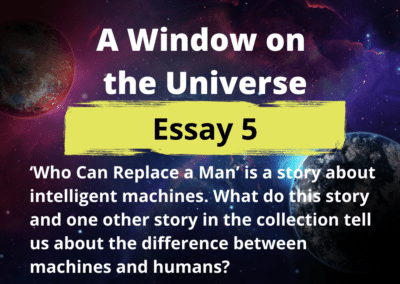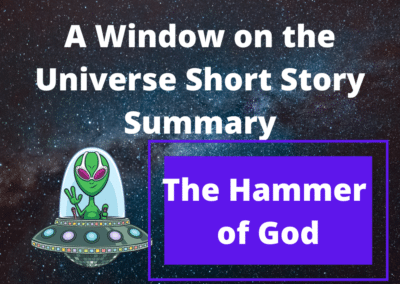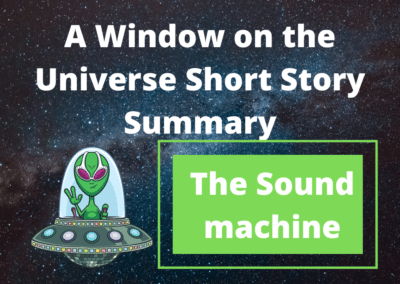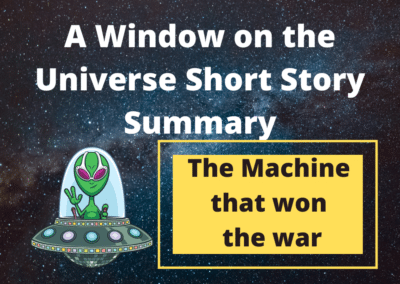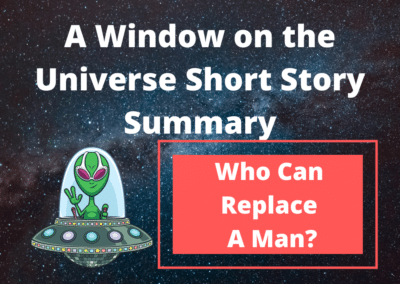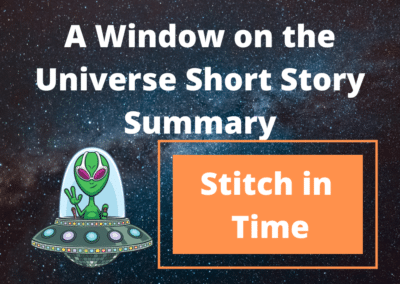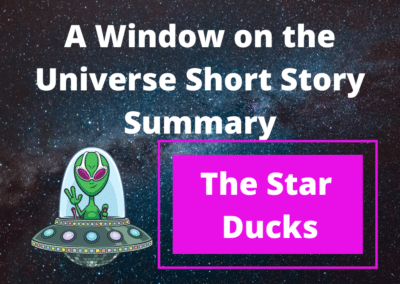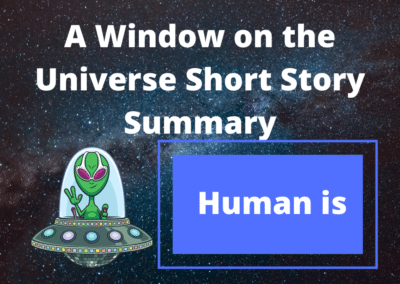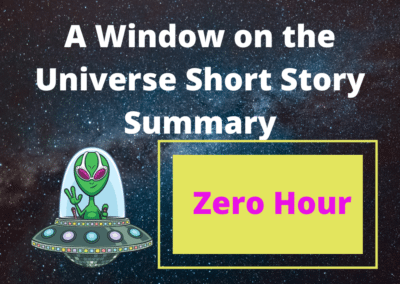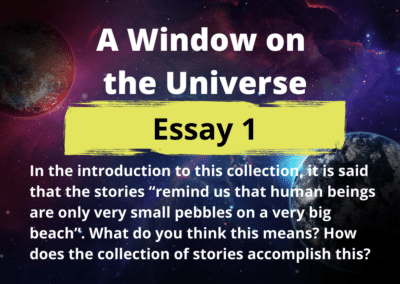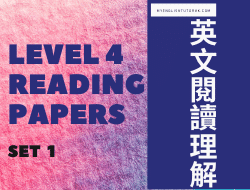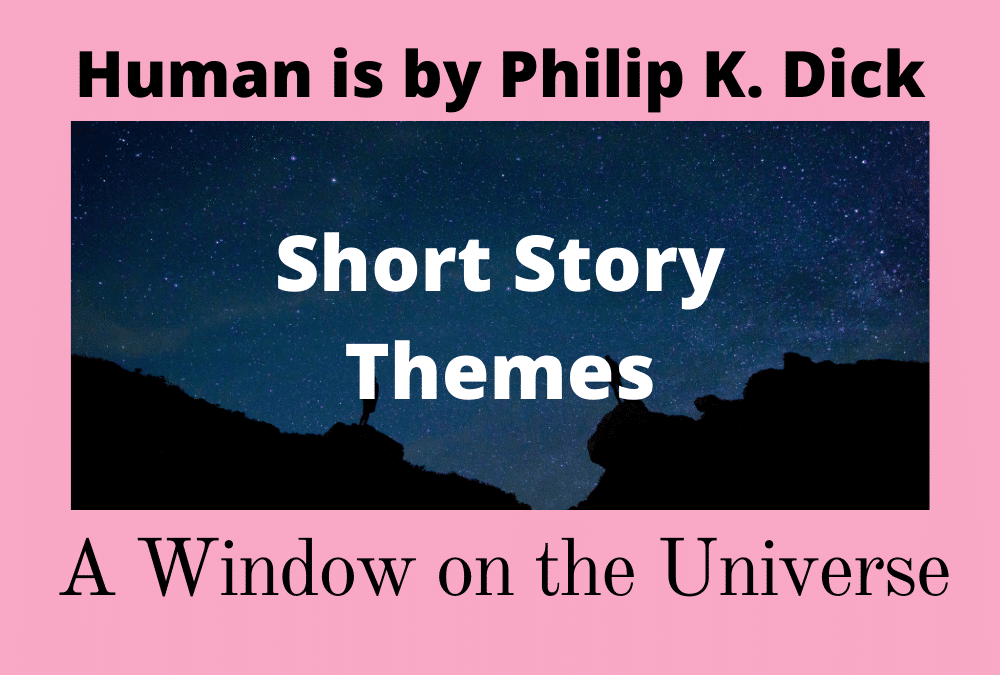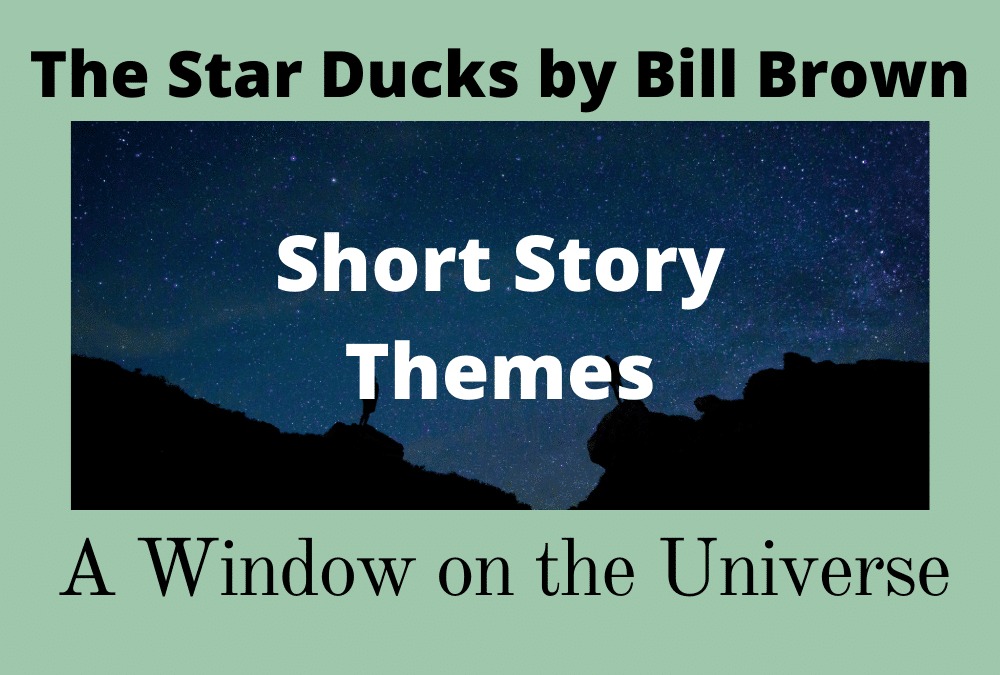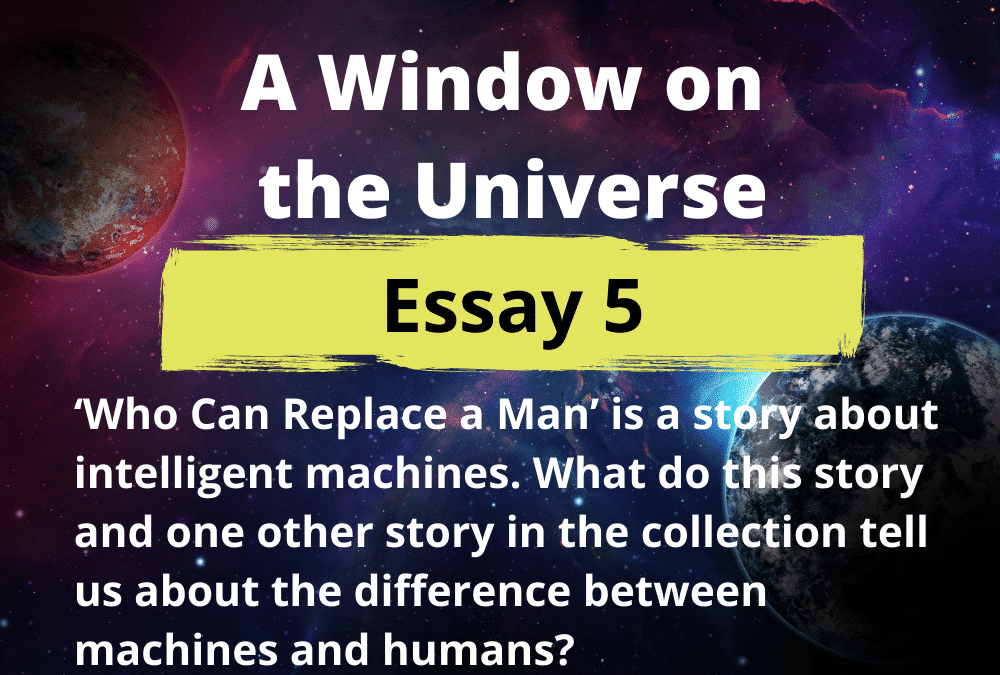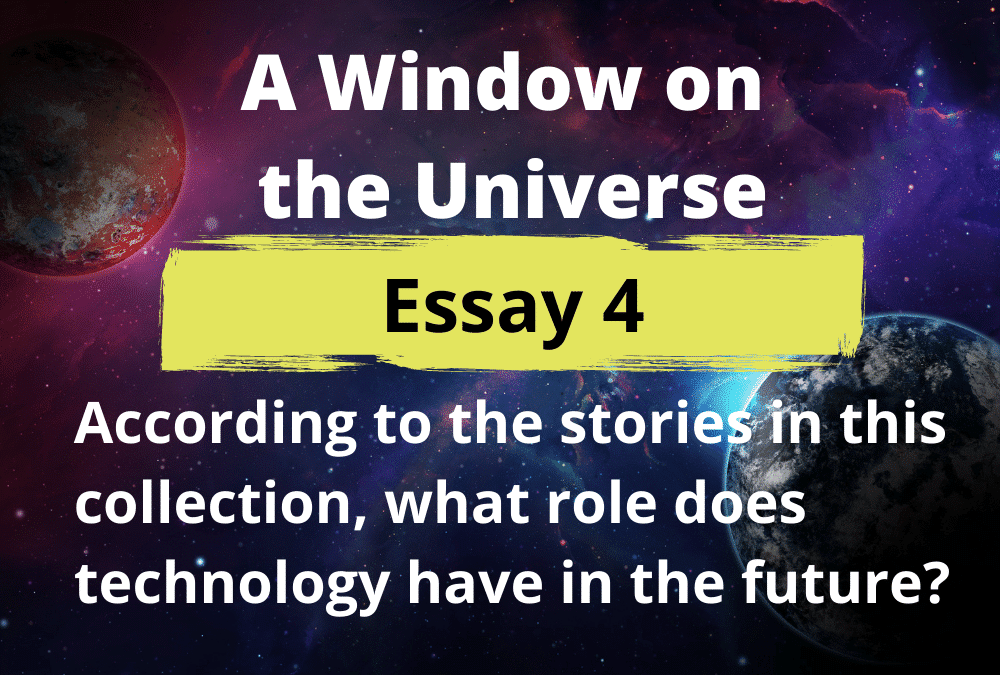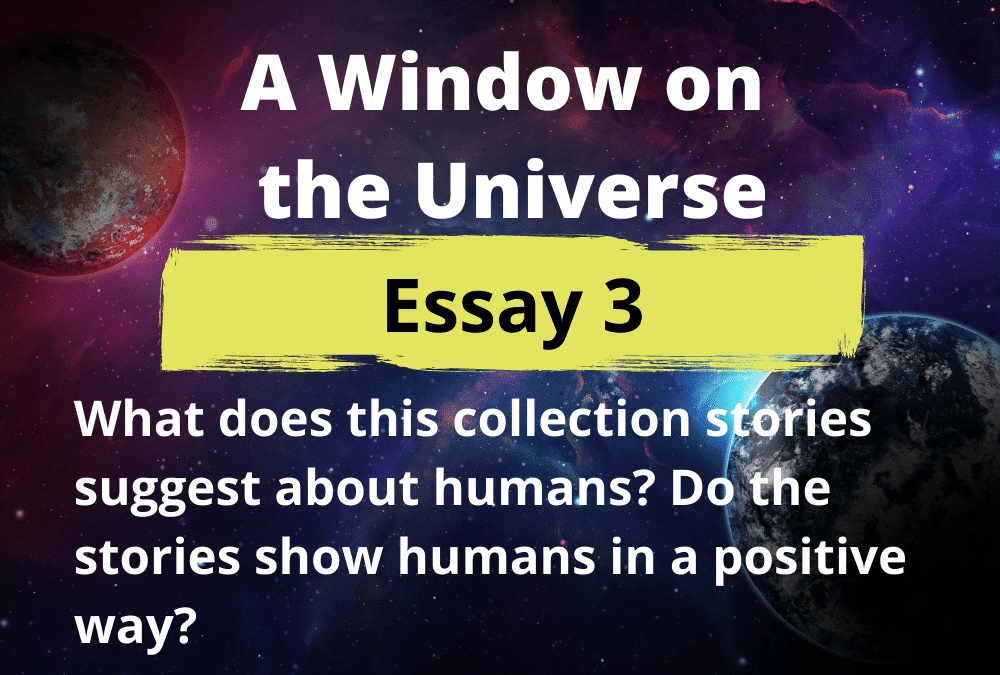
It’s a Good Life A Window on the Universe
It’s a Good Life A Window on the Universe Themes
It’s a Good Life
- Fear of a child who can read minds: danger of a child who has powers beyond his comprehension (e.g. tries to help people but sometimes gets it wrong, has no real sense of conscience)
- Anthony kills and tortures animals: a scary clue for what he could do to people
- The eeriness of having to pretend everything is fine all the time, when actually everyone is living in terror
- Anthony has ability to do bad (torture animals) and good (make places nice for animals because he knows what they want): like God
- It’s revealed that he killed lots of people: but he’s not harsh about it, just confused – confusing for reader too, who doesn’t know whether to condemn or pity him
- The picture they paint of life there is very bleak: everything done by hand (not like the high-tech futures in the other stories), and exchanging leisure items; seem very isolated (revealed that Anthony had moved the village somewhere)
- Ends very miserably – no sign of any change ahead; if anything, the future of the village is in more danger because the new generation of the village don’t know about how dangerous Anthony is
Students also browsed:
